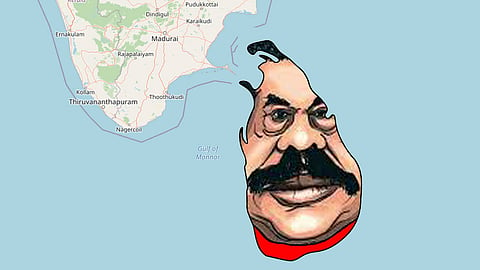Sri Lanka has been witnessing a surge of Sinhala nationalism, akin to the Hindu nationalism that propelled Narendra Modi and the Bharatiya Janata Party to power in 2019. The central figure in the politics of the island nation is Gotabaya Rajapaksa who is hugely popular among the Sinhala majority for crushing the Tamil Tiger separatist rebels in 2009 when he was defence secretary. Many in the country also admire him for his administration’s success in bringing stability and successfully containing the recent Coronavirus outbreak. Sri Lanka has been one of the few nations to hold an election despite the Coronavirus pandemic.
The country has had relatively few confirmed infections and deaths of Coronavirus. So it came as no surprise when voters handed him and his brother, two-time President Mahinda Rajapaksa’s Sri Lanka Podujana Peramuna (SLPP) a two-third majority in the parliamentary election. Gotabaya, the younger of the two brothers, was elected president in a similar landslide victory in November. The Rajapaksa family will continue to reign supreme in the island nation for a long time.
The victory means several things to several people and countries. India needs to be particularly wary of the development. Indeed New Delhi will have to take proactive steps to ensure that Sri Lanka does not slip totally into the arc of influence of China which has been wooing and ensnaring the Rajapaksa brothers alternatively.
To the Rajapaksas, it gives the opportunity to amend the constitution right off the bat. The 19th amendment to the constitution, passed in 2015 after Mahinda was voted out of office following nearly 10 years in power, vastly reduces the executive powers of the president, distributing them more evenly between the prime minister, Parliament and other democratic institutions. The Rajapaksas have contended the weakening of the presidency led to inefficient governance and weak security policies.
While amending the constitution will now not pose a problem, the Rajapaksas’ immediate concern will be the island nation’s economy, struggling under the burden of low tourism numbers, Coronavirus pandemic induced economic inactivity and crushing foreign debt. The downslide had begun after the 2019 Easter Sunday bombings that killed more than 260 people. This year, the World Bank estimates that the country’s economy could contract by as much as 3 per cent. The only other time the country’s economy had contracted in its 72-year history was in 2001, during the height of the war with Tamil rebels.
Compounding the problem has been foreign debt taken on by the government to fund development projects. At the end of 2019, the country’s external debt stood at 67 per cent of its $84 billion GDP. Many of the debt repayments in the public sector are due later this year.
That is where China will possibly play a role. China’s share of Sri Lanka’s external debt is almost 15 per cent. Two years ago, the China Harbor Engineering Company took over the Hambantota Port Development Project after Sri Lanka failed to make payments on the debt it had taken on. The transfer gave China control of territory just a few hundred miles off the shores of India, and a strategic foothold along a critical commercial and military waterway.
Recently, Gotabaya has twice turned to China in the last two months, desperate for a bailout as its foreign reserves dwindled to $7.2 billion (in April). So far, Beijing has granted an “urgent” loan of $500 million to help it fight the virus. Recently, the cabinet approved a decision to borrow another 15 billion Sri Lankan rupees ($80 million) from the China Development Bank, to improve 105 km of roads. It is possible that Beijing may allow its banks to recast loans with a concessionary rate.
Sri Lanka has also requested India for postponement of its debt repayment. The request was made by Mahinda Rajapaksa to Narendra Modi six months ago but for some strange reason, no decision was taken. India has been content with small gestures like a $400 million currency swap facility to the Central Bank of Sri Lanka and sending out consignments of essential medicines and equipment to fight the Covid-19 pandemic. With over $500 billion in reserves, surely we can do more.
Unless tourism opens up opportunities for the Lankan economy to come out of the ventilator, the Rajapaksa brothers will be looking for help from any quarter. India should also coordinate with western nations and the multilateral agencies they control on how to come to the rescue of the beleaguered island nation. Otherwise, China will easily occupy this space. China’s stranglehold on our neighbourhood will get further strengthened.
This is the clear and present danger of the outcome of the Sri Lanka election.

